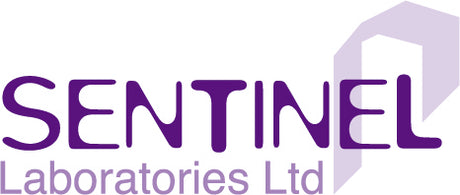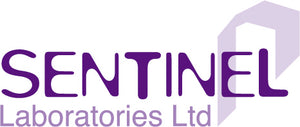10 Vital Applications of Disposable and Protective Nitrile Gloves: Beyond Basic Hand Protection
In an era where hygiene and safety protocols are increasingly stringent, nitrile gloves have become indispensable across a wide range of industries. Once primarily used in healthcare settings, these highly durable and chemical-resistant gloves now play pivotal roles in various sectors, thanks to their superior material properties. As the global disposable gloves market—estimated at USD 9.57 billion in 2023—continues its upward trajectory, reliable glove suppliers and distributors are essential to meeting rising demand. Below, we explore ten key applications where nitrile gloves are making a significant impact.
1. Healthcare: The Primary Shield Against Contaminants
The medical sector remains the largest consumer of nitrile gloves due to their exceptional puncture resistance, chemical protection, and hypoallergenic properties. A study in the American Journal of Infection Control highlights that the use of nitrile gloves can reduce cross-contamination risks by up to 80%, underscoring their critical role in infection prevention.
Technical Insight: Nitrile gloves are inherently more puncture-resistant than latex, with a tensile strength of approximately 14-20 MPa, making them the preferred choice in surgical and high-risk environments. Their chemical resistance to blood-borne pathogens and other contaminants exceeds that of latex, further solidifying their importance in healthcare.
2. Food Industry: A Barrier to Contamination
In food handling and processing environments, hygiene is non-negotiable. According to the Food Standards Agency, nitrile gloves play a crucial role in reducing foodborne illness outbreaks by preventing direct contact between food handlers and consumables. These gloves are particularly valuable for their resistance to fats, oils, and food-grade chemicals used in industrial kitchens.
Pro Tip: Always adhere to Hazard Analysis and Critical Control Points (HACCP) guidelines by changing gloves when switching between raw and cooked foods to minimize cross-contamination risks.
3. Beauty and Cosmetics: Precision and Protection in One
In the cosmetics industry, nitrile gloves are critical for preventing allergic reactions, not just for clients but also for professionals handling volatile chemicals like acetone, alcohol, and various adhesives. These gloves provide excellent tactility and sensitivity, making them ideal for intricate procedures such as microblading, eyelash extensions, and dermaplaning.
Technical Advantage: Nitrile gloves offer superior chemical resistance over latex or vinyl alternatives, particularly against solvents and oils commonly found in beauty products. Their superior flexibility, coupled with 0.08-0.12mm thickness options, ensures optimal dexterity for precision tasks.
4. Cleaning Services: Chemical and Biohazard Defense
Professional cleaning staff are routinely exposed to hazardous cleaning agents, disinfectants, and biological contaminants. A report by the British Cleaning Council shows that 95% of cleaning professionals deem nitrile gloves essential for their operations due to their high chemical resistance, which significantly exceeds that of latex or vinyl gloves.
Chemical Resistance: Nitrile gloves provide robust defense against common cleaning agents, including quaternary ammonium compounds, chlorine-based cleaners, and aldehydes, making them indispensable in maintaining sanitation and personal safety.
5. Automotive Industry: Protection Against Harsh Substances
In automotive repair environments, technicians regularly handle harsh chemicals, including lubricants, engine oil, and battery acid. Nitrile gloves offer excellent chemical and mechanical protection, preventing both skin exposure and contamination of sensitive vehicle components.
Technical Specification: Automotive-grade nitrile gloves often feature enhanced tensile strength and textured fingertips for improved grip in greasy or oily conditions. They resist chemicals such as diesel fuel and petroleum-based products, making them ideal for use in workshops.
6. Scientific Research: Precision in Hazardous Environments
Scientific laboratories require high levels of precision, combined with protection against hazardous substances. Nitrile gloves are the preferred choice for laboratory personnel working with corrosive chemicals, solvents, and biological agents due to their excellent impermeability and durability.
Interesting Fact: Nitrile gloves can be chemically engineered to change color upon exposure to certain hazardous substances, such as phenol or hydrofluoric acid, providing researchers with an added layer of safety during experiments.
7. Veterinary Care: Safeguarding Animal and Human Health
Veterinary practitioners face unique risks, such as zoonotic diseases and unpredictable animal behaviors. The British Veterinary Association recommends nitrile gloves as part of standard protective equipment to prevent pathogen transmission between animals and humans.
Material Advantage: Nitrile gloves offer protection against a wide range of chemicals used in veterinary care, including disinfectants, antibiotics, and anesthetics, while also providing sufficient tactile sensitivity for delicate procedures.
8. Tattoo and Piercing Studios: Sterility and Safety
In body modification environments, sterility is non-negotiable. Tattoo and piercing professionals are required to use sterile gloves to maintain a clean, safe environment and reduce infection risks. Nitrile gloves, which are often sterile-packaged, offer the puncture resistance necessary for procedures involving needles and sharp instruments.
Technical Consideration: Nitrile gloves provide an added layer of protection against bloodborne pathogens, including hepatitis B and HIV, making them indispensable for body artists adhering to strict sanitary standards.
9. Childcare Facilities: Ensuring Hygiene in High-Risk Environments
Childcare providers frequently use nitrile gloves during nappy changes, food preparation, and first-aid scenarios. The National Day Nurseries Association emphasizes the role of disposable gloves in preventing the spread of infections among children, who are particularly vulnerable to communicable diseases.
Health & Safety Standards: Nitrile gloves offer compliance with EN 455 standards, ensuring their suitability for use in childcare settings, where hygiene and protection are paramount.
10. Arts and Crafts: Creative Safety
Artists working with potentially hazardous materials such as oil-based paints, solvents, and resins require protective gloves to safeguard their skin. Nitrile gloves provide excellent resistance to these substances without sacrificing the fine dexterity needed for detailed work.
Technical Note: The chemical resistance properties of nitrile gloves make them ideal for use with paints and adhesives containing solvents such as toluene, turpentine, and acetone, which can degrade other glove materials like latex or vinyl.

The Role of Suppliers and Distributors: Delivering High-Quality Protection
As the demand for nitrile gloves expands across various industries, the role of trusted suppliers and distributors becomes critical in ensuring an uninterrupted supply of high-quality products.
Key Considerations for Selecting a Supplier:
1. Quality Compliance: Choose suppliers that adhere to international standards such as ISO 9001 and ISO 13485, which ensure stringent quality management systems.
2. Diverse Product Offering: Ensure the supplier provides a comprehensive range of gloves suitable for different industrial and medical applications, including specialized chemical-resistant and sterile options.
3. Supply Chain Resilience: The recent global supply chain disruptions have highlighted the importance of a robust and reliable distribution network
4. Sustainability Practices: Look for suppliers committed to eco-friendly alternatives, such as biodegradable nitrile gloves, which can reduce the environmental impact of disposable PPE.
5. Technical Expertise: A reliable supplier offers guidance on glove selection tailored to specific industry needs, ensuring businesses receive optimal protection.
As the market evolves, innovations in nitrile gloves—such as the development of biodegradable materials and sensor-embedded gloves that detect contamination in real-time—promise to drive further adoption across new sectors.
Conclusion: A Future Focused on Safety
Nitrile gloves have demonstrated their versatility and reliability across diverse applications, from high-stakes healthcare settings to precision-driven laboratory environments. As industries continue to prioritize safety, these gloves will remain a fundamental component in safeguarding both individuals and products.
Whether you are procuring gloves for industrial use or personal protection, choosing the right supplier ensures that you are equipped with the best possible defense. By investing in nitrile gloves, we contribute not only to personal safety but to the collective health of our communities.






Leave a comment